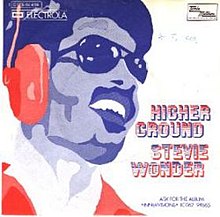Who is the hero of the Joseph story, which comes to a climax
in this week’s Torah portion, Vayigash? The most obvious choice is Joseph himself,
who, upon revealing his identity to his brothers, forgives them for the cruel
betrayal they showed him as a youth.
Yet there is another, more flawed and less likely, candidate: Joseph’s
older brother Judah.
In one of the longest and most heroic speeches in the Torah,
Judah sacrifices himself for the sake of his father Jacob and his younger
brother Benjamin. Decades after his
complicity in selling Joseph into slavery, Judah proves himself a changed
man. He has suffered enormously, losing
two sons. He has also transgressed—and
publicly acknowledged his failings.
Judah transforms his personal pain and shortcomings into profound
spiritual growth. As Rabbi Elyse
Goldstein notes: “This is
the measure of Judah's greatness: his tragedy becomes the soil for empathy,
compassion, forgiveness, and self-sacrifice. He was the one to step forward
when the hour demanded it because he was the one who knew that to redeem
himself out of his own past mistakes and accumulated grief, he had to extend
himself for the redemption of others.”
The Rabbis
refer to Joseph as HaTzadik, “the
righteous one.” He is a powerful and
important figure in our tradition. But
his righteousness renders him a little remote and distant. It is hard to relate to, and engage with,
Joseph. Most of us connect more easily
with Judah, the deeply imperfect man who wrestles with his moral choices and
grows from his struggles. The midrash
recognizes his greatness by pointing out that his name, Yehudah, contains all four letters of God’s Name, (yud-hey-vav-hey)—and is the origin of
our shared name, Yehudim, Jews. Judah is also the progenitor of King David
and, by extension, the messiah. The
messianic hope for an age of peace, justice, and compassion can only be
realized if we, collectively and individually, commit ourselves to the kind of
self-reflection and spiritual growth that we learn from Judah.
Stevie
Wonder points us in this direction in his classic song, “Higher Ground.” He opens:
People keep on learning
Soldiers keep on warring. . .
Powers keep on lying
While your people keep on dying
‘Cause it won’t be long
Like
Judah, we frequently fail—warring, lying,
dying—and yet we keep learning. The human calling is to grow from our
mistakes.
The
chorus, which repeats several times, expresses this challenge:
I’m so darn glad he let me try it again
‘Cause my last time on earth I lived a whole
world of sin
I’m so glad I know more than I knew then
Gonna keep on trying
Till I reach my highest ground.
This could
be Judah’s theme song—and ours. We fail,
time and again—and through our failings, with openness and courage, somehow
find our way. Let us be grateful for
second and third chances—and more—and strive, through them, to reach highest
ground. Indeed, because it is so
hard-won, that ground is even more exalted.
As the Talmud teaches: “Those who sin and repent stand in a higher place
than those who never sinned. We feel
that in our bodies with Stevie Wonder’s song, where the funky groove moves
inexorably toward that aspirational chorus.
The
greatest heroes are not born but are always in the process of becoming. This is Judah’s—and Stevie’s—blessed legacy
for us.
-->

No comments:
Post a Comment